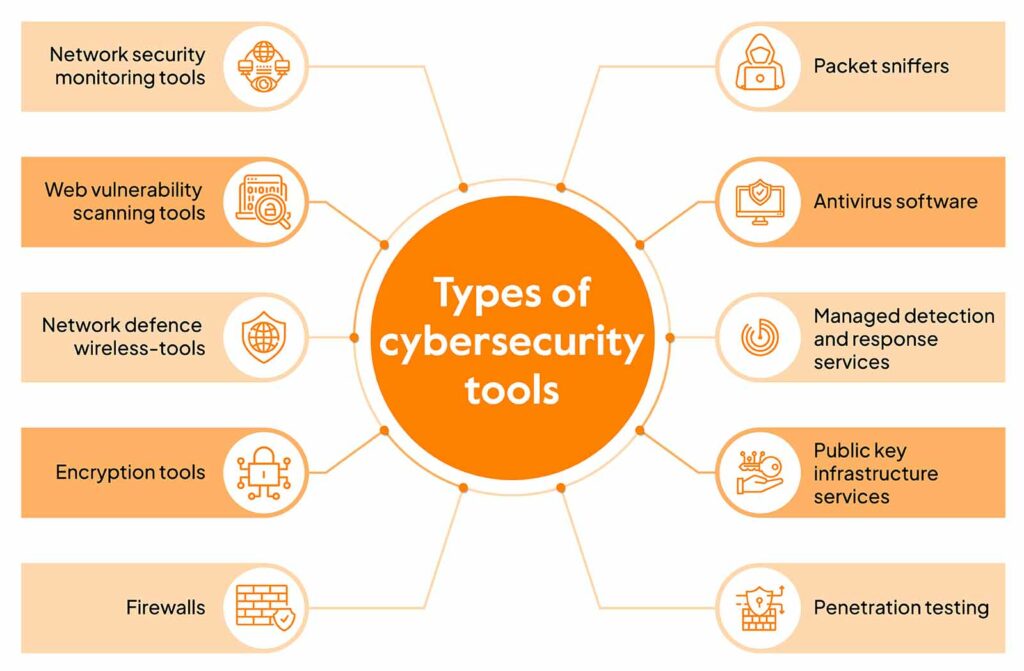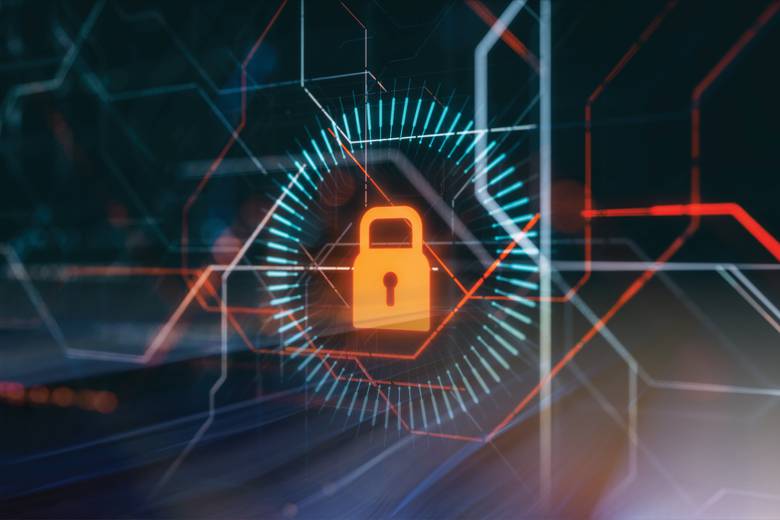In today’s world, the internet is essential. We use it for work, school, and fun. But, it is not always safe. Hackers and cybercriminals are everywhere. They want to steal your data. They can cause a lot of harm. This is why we need cyber security tools and software.
Table of Contents
ToggleWhat is Cyber Security?
Cyber security means protecting computers and data from attacks. It includes many methods and practices. The goal is to keep your information safe. This is important for everyone. It does not matter if you are a person or a business. Everyone needs cyber security.
Why Do We Need Cyber Security Tools?
There are many reasons to use cyber security tools. Here are some of them:
- Protect Personal Information: Your personal data is important. Cyber security tools help keep it safe.
- Prevent Financial Loss: Hackers can steal money from your bank accounts. Cyber security tools can stop them.
- Secure Online Transactions: When you shop online, your data needs to be safe. Cyber security tools help with this.
- Protect Business Data: Businesses have a lot of important data. Cyber security tools help protect it.
- Prevent Identity Theft: Hackers can steal your identity. Cyber security tools can help stop this.
- Ensure Safe Internet Browsing: Cyber security tools protect you while you browse the internet.

Credit: sprinto.com
Types of Cyber Security Tools and Software
There are many types of cyber security tools. Each tool has a different job. Here are some common types:
1. Antivirus Software
Antivirus software protects your computer from viruses. It scans your files and removes any threats.
2. Firewalls
Firewalls protect your computer from unauthorized access. They control the data that comes in and goes out.
3. Encryption Tools
Encryption tools make your data unreadable to hackers. Only you can read the data with a special key.
4. Password Managers
Password managers help you create and store strong passwords. This makes it hard for hackers to guess your passwords.
5. Anti-phishing Tools
Anti-phishing tools protect you from phishing attacks. These attacks try to trick you into giving away your data.
6. Virtual Private Networks (vpns)
VPNs keep your internet connection private. They hide your IP address and encrypt your data.
7. Intrusion Detection Systems (ids)
IDS tools monitor your network for suspicious activity. They alert you if they find any threats.
The Benefits of Using Cyber Security Tools
Using cyber security tools has many benefits. Here are some of them:
- Peace of Mind: You can use the internet without worry.
- Data Protection: Your data stays safe from hackers.
- Financial Security: Your money is safe from cybercriminals.
- Business Continuity: Businesses can keep running smoothly.
- Compliance: Some laws require businesses to use cyber security tools.

Credit: www.sprintzeal.com
How to Choose the Right Cyber Security Tools
Choosing the right cyber security tools can be hard. Here are some tips to help you:
- Identify Your Needs: Think about what you need to protect.
- Research: Look for tools that meet your needs.
- Read Reviews: Check what other people say about the tools.
- Compare Features: Make sure the tools have the features you need.
- Check Compatibility: Make sure the tools work with your devices.
- Consider Cost: Choose tools that fit your budget.
Why Cyber Security Software Tools are Important for Business Success
Cyber security software tools are very important for businesses today. They keep your data safe. They stop hackers. They protect your business.

Credit: www.aureon.com
Protecting Data
Every business has data. This data can be customer details, sales figures, or business plans. If this data gets stolen, it can hurt your business. Cyber security tools protect this data. They keep it safe from bad people.
Types Of Data
- Customer information
- Sales records
- Employee details
- Business plans
Preventing Hacks
Hackers are always looking for ways to break into businesses. They want to steal data or cause trouble. Cyber security tools stop them. These tools can detect and block hacking attempts.
Common Types Of Hacks
- Phishing
- Malware
- Ransomware
- Spyware
Ensuring Safety
Businesses need to be safe. They need to protect their customers and employees. Cyber security tools help ensure this safety. They create a secure environment for everyone.
Benefits Of Safety
- Trust from customers
- Happy employees
- Good business reputation
Compliance with Laws
There are laws about data protection. Businesses must follow these laws. Cyber security tools help businesses stay compliant. This prevents legal trouble.
Important Laws
- General Data Protection Regulation (GDPR)
- Health Insurance Portability and Accountability Act (HIPAA)
- California Consumer Privacy Act (CCPA)

Credit: www.sachamber.org
Cost Savings
Cyber attacks can be very costly. They can cause loss of data, money, and trust. Cyber security tools can save businesses money. They prevent these costly attacks.
Costs Of Cyber Attacks
| Type of Cost | Example |
|---|---|
| Financial Loss | Loss of money due to stolen data |
| Reputation Damage | Loss of customer trust |
| Legal Fees | Cost of legal action after a breach |
Peace of Mind
Running a business is hard work. Worrying about cyber attacks makes it harder. Cyber security tools give peace of mind. Business owners can focus on growing their business.
Ways Cyber Security Tools Provide Peace Of Mind
- Constant monitoring
- Automatic updates
- Real-time alerts
Frequently Asked Questions
What Are Cyber Security Tools?
Cyber security tools protect networks, devices, and data from unauthorized access and attacks. They ensure safety.
Why Do Businesses Need Cyber Security Tools?
Businesses need cyber security tools to prevent data breaches, protect sensitive information, and ensure safe online operations.
Why Are Cyber Security Tools Important?
Cyber security tools detect and prevent cyber threats. They protect sensitive data, reduce risks, and ensure system stability.
How Can Cyber Security Tools Save Money?
Cyber security tools can save money by preventing costly data breaches and minimizing downtime from cyber attacks.
How Do Cyber Security Tools Work?
Cyber security tools monitor, detect, and respond to threats. They use algorithms and rules to identify suspicious activity.
What Are Common Types Of Cyber Security Software?
Common types include antivirus, firewalls, intrusion detection systems, and encryption tools. They help protect against various cyber threats.
Which Cyber Security Tools Are Essential For Businesses?
Essential tools include antivirus software, firewalls, encryption tools, and intrusion detection systems to safeguard business data.
Cyber security is very important today. It keeps our digital world safe. But how do cyber security tools and software work? Let’s find out in simple words.
How Does Antivirus Software Work?
Antivirus software scans files and programs. It detects and removes malware. This keeps your system safe.
What Is A Firewall In Cyber Security?
A firewall monitors network traffic. It blocks harmful data. It acts as a barrier between trusted and untrusted networks.
How Do Intrusion Detection Systems Function?
Intrusion detection systems monitor network activity. They detect and alert suspicious behavior. This helps prevent breaches.
Conclusion
Cyber security tools and software are very important. They protect our digital lives. They keep our data safe. Each tool has a job. Together, they make a strong defense. This helps protect personal information, keep businesses safe, stop financial loss, and prevent identity theft.
The tools are vital for every business. They protect data, prevent hacks, and ensure safety. They help with legal compliance and save money. Most importantly, they give peace of mind. Every business should use cyber security tools.
Understanding how these tools work can help us stay safe online. Now you know the basics of cyber security tools and software. Stay safe!

